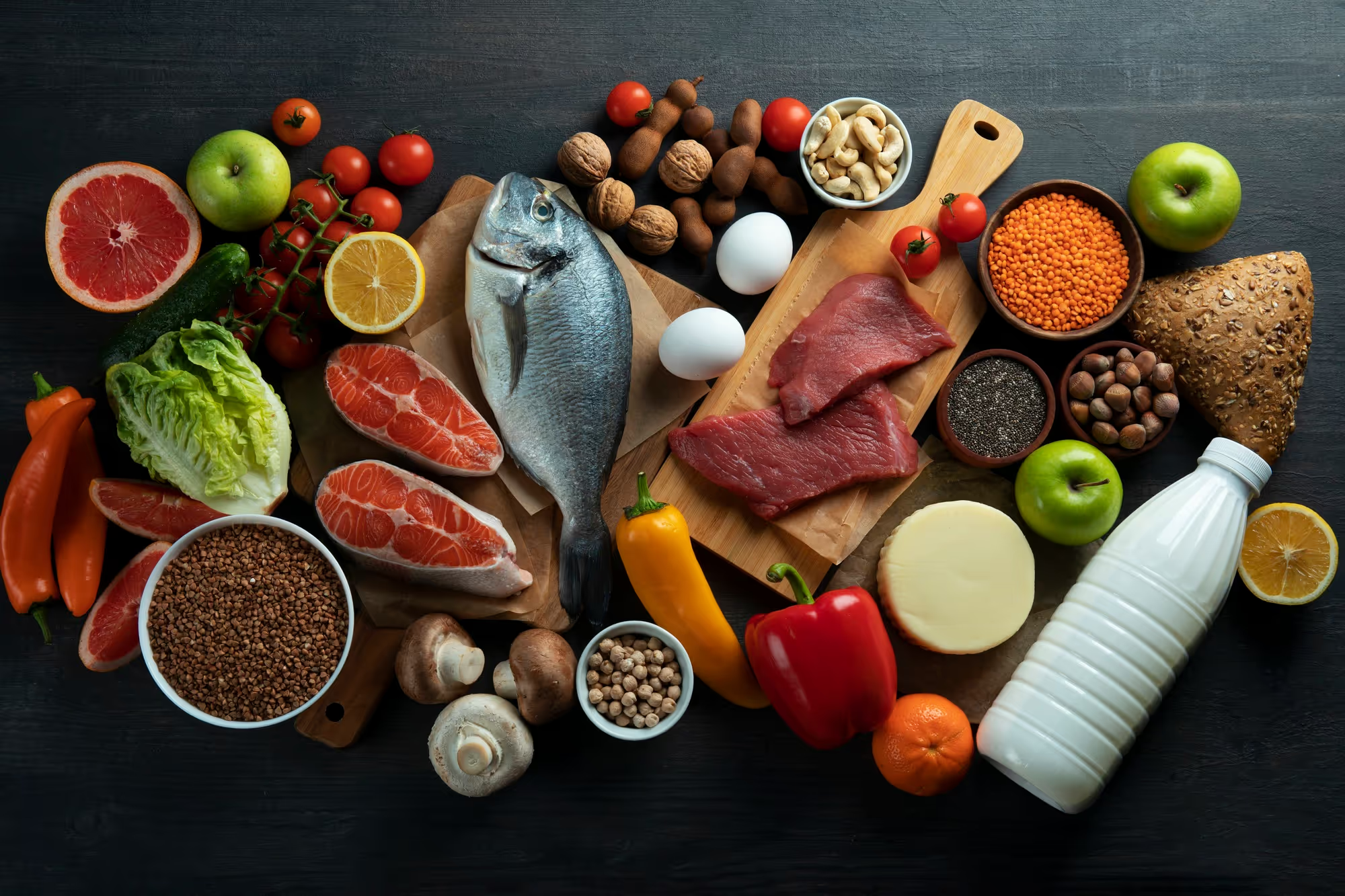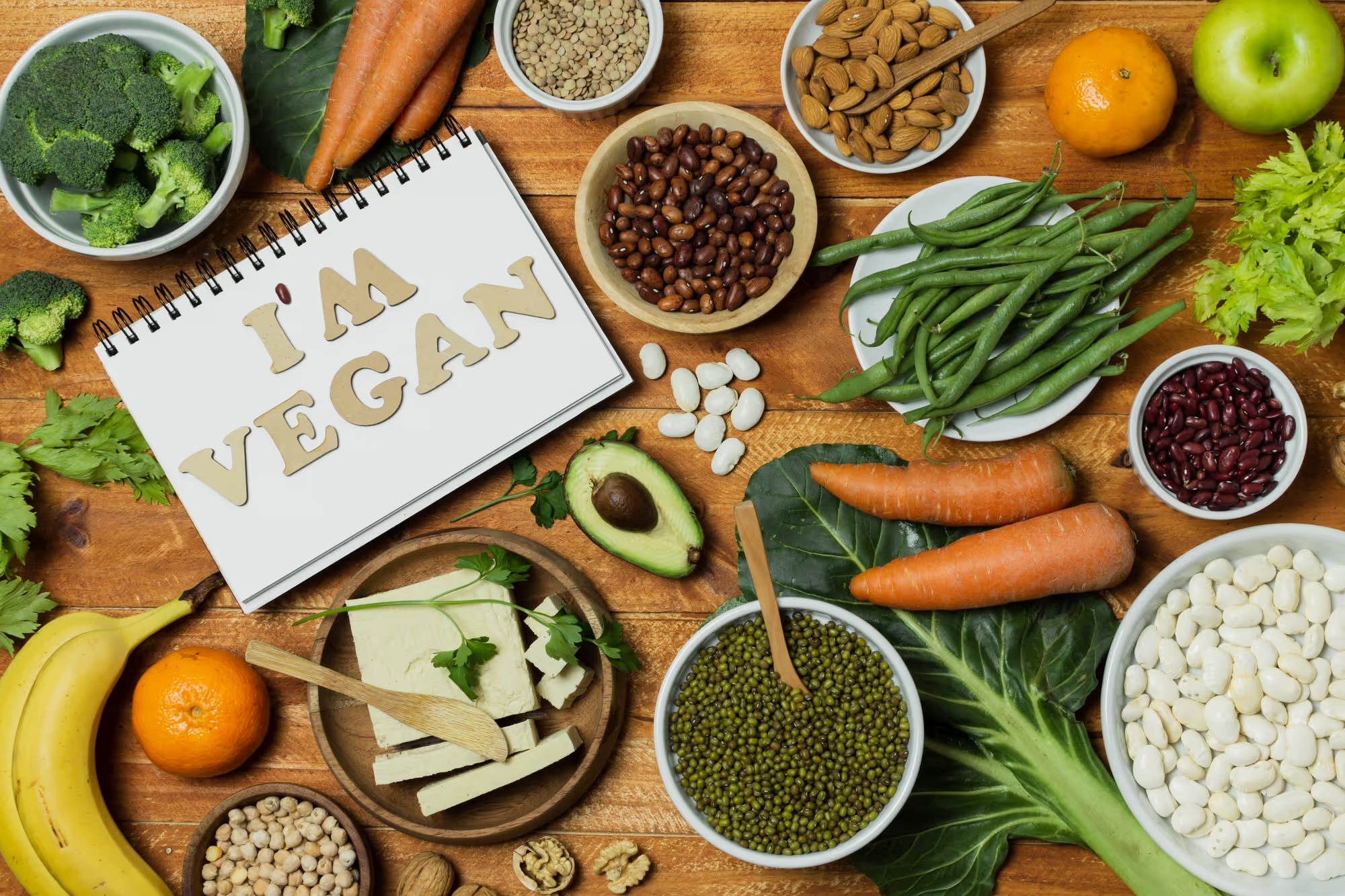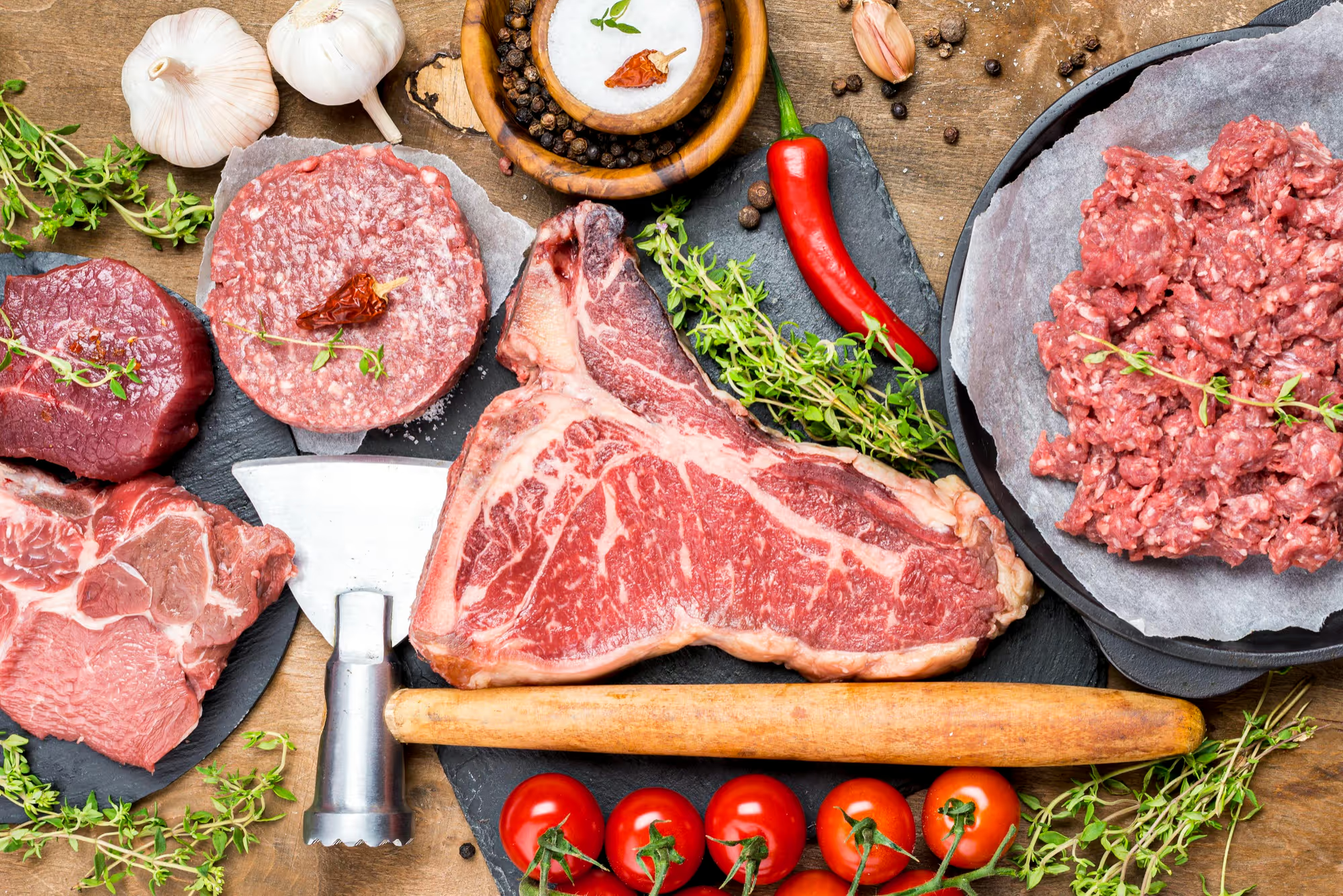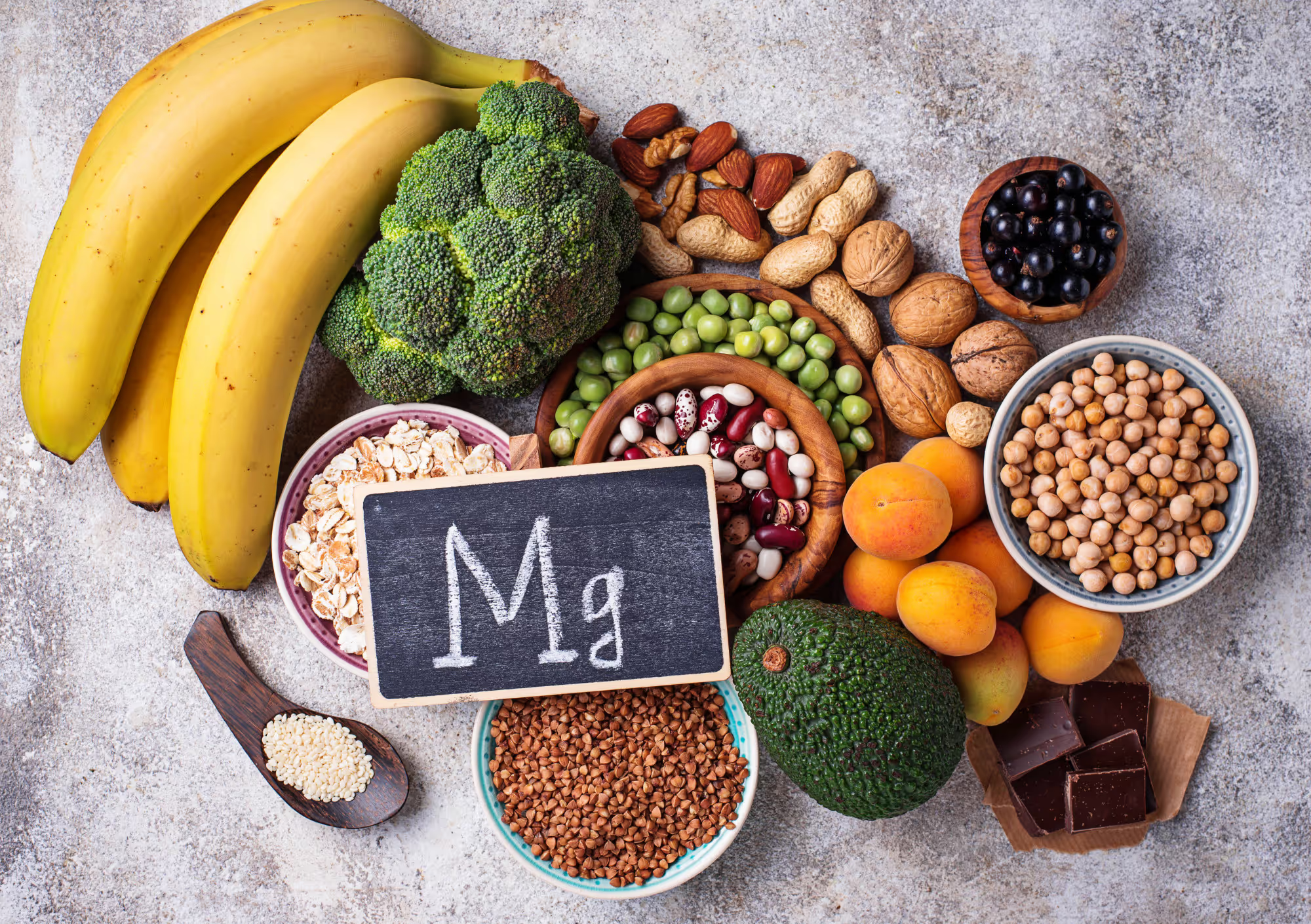1. What is a diet and why does it matter?
A diet is not just a weight loss plan, but a way of eating that influences daily energy, health and even longevity. Choosing the right diet depends on the goals, lifestyle and needs of the body
2. Popular types of diets
Keto Diet
Based on reducing carbohydrates and increasing the intake of healthy fats, it supports fat burning through the ketosis process.
- It reduces carbohydrates to below 50g/day, forcing the body to enter ketosis.
- In ketosis, the body burns stored fat for energy.
- Allowed foods: meat, fish, eggs, avocados, fatty cheeses, olive oil.
- Avoid bread, pasta, potatoes, sweets and sugary drinks.
- Benefits: rapid weight loss, blood sugar control, stable energy.
- Risks: Lack of fiber and vitamins if it is not balanced.
📖 Read the full article: Keto Diet
The Mediterranean Diet
Inspired by the culinary customs of Greece and Italy, it includes fish, olive oil, vegetables and fruits — ideal for heart health.
- Inspired by the lifestyle of the populations of Greece, Italy and Spain.
- It is based on olive oil, fish, vegetables, fruits and whole grains.
- Red meat rarely consumed, emphasis on fish and seafood.
- Red wine in moderate quantities is accepted.
- Benefits: protects the heart, reduces inflammation, associated with longevity.
- Easy to follow in the long term, being varied and tasty.
📖 Read the full article: The Mediterranean Diet
Paleo diet
It focuses on “ancestral” foods such as lean meats, fish, nuts and vegetables, eliminating cereals and processed foods.
- It includes lean meats, fish, eggs, fruits, vegetables, nuts and seeds.
- Inspired by the diet of hunter-gatherer ancestors.
- Completely excludes dairy, cereals and processed foods.
- Supports digestive health and blood sugar control.
- Benefits: reduction of inflammation and weight loss.
- Criticisms: It can be restrictive and difficult to maintain.
📖 Read the full article: Paleo diet
Carnivorous Diet
An extreme approach, based almost exclusively on meat and animal products, promoted for simplicity and high protein intake.
- Extremely simple: based exclusively on meat, fish and eggs.
- Eliminates carbohydrates and fiber almost completely.
- Promoted for reducing inflammation and allergies.
- It can lead to high intake of protein and saturated fat.
- Benefits: Fast weight loss and constant energy.
- Risks: lack of fiber → constipation and intestinal problems.
📖 Read the full article: Carnivorous Diet
Low-Carb Diet
Reduce carbohydrates, but without the strict restrictions of Keto. Provides flexibility for weight loss and blood sugar control.
- Reduced carbohydrates (but not as strictly as in Keto).
- Allows 50—150g of carbohydrates per day.
- Recommended foods: meat, fish, eggs, vegetables, whole milk.
- It occasionally includes fruits and whole grains.
- Benefits: flexible, lowers blood sugar, helps with weight loss.
- Suitable for people who do not want harsh restrictions.
📖 Read the full article: Low-Carb Diet
DASH diet
Created to reduce hypertension, it emphasizes vegetables, fruits, lean dairy, and salt limitation.
- Created to reduce blood pressure.
- Emphasis on fruits, vegetables, low-fat dairy.
- It includes whole grains, lean meat and fish.
- Limit salt, saturated fats and sweets.
- Benefits: reduces the risk of cardiovascular disease.
- Recommended for people with hypertension.
📖 Read the full article: DASH diet
Vegan Diet
Completely excludes animal products, focusing on plants, vegetables, whole grains and legumes.
- Excludes all products of animal origin.
- It is based on vegetables, fruits, legumes, nuts and whole grains.
- Requires supplementation with vitamin B12, iron and omega-3.
- Benefits: Reduces the risk of chronic diseases, environmentally sustainable.
- It can be difficult to follow without nutritional planning.
📖 Read the full article: Vegan Diet
Vegetarian Diet
The vegetarian diet is a food style that excludes meat and fish, but allows the consumption of dairy and eggs. It is considered a transition option between omnivorous and vegan diets, being more flexible and easier to follow in the long term.
- Similar to Vegan, but allows eggs and dairy.
- Slightly more flexible, with less risk of deficiencies.
- Benefits: Balanced for heart and digestion health.
- Supports weight control in the long term.
- Popular globally, being a transition between omnivorous and vegan.
📖 Read the full article: Vegetarian Diet
Alkaline Diet
It is based on foods that reduce acidity in the body: green vegetables, fruits and nuts — promoted for energy and balance.
- It is based on the idea of balancing pH in the body.
- Emphasis on green vegetables, fruits, nuts and seeds.
- Reduce red meat, dairy and processed foods.
- Promoted for increased energy and better immunity.
- Criticisms: the body regulates the pH anyway, but the diet remains healthy.
📖 Read the full article: Alkaline Diet
4. How to choose the right diet for you
There is no such thing as a “universal diet”. The right choice depends on your goals: weight loss, maintenance, energy for sports or metabolic health. It is recommended that you consult a doctor or nutritionist before starting.
5. Frequently asked questions about diets
What is the most effective diet for weight loss?
It depends on the body and discipline. Many choose Keto or Low-Carb for quick results, but Mediterranean or DASH for sustainability.
Can I do intense sports if I'm on a diet?
Yes, but the food plan needs to be adapted. For example, Keto and Carnivore can be challenging for endurance sports, but good for strength and definition.
How long should I go on a diet?
Some are thought of as permanent lifestyles (Mediterranean, Vegetarian), others rather as short-term protocols (Keto, Carnivorous).
























.svg)
